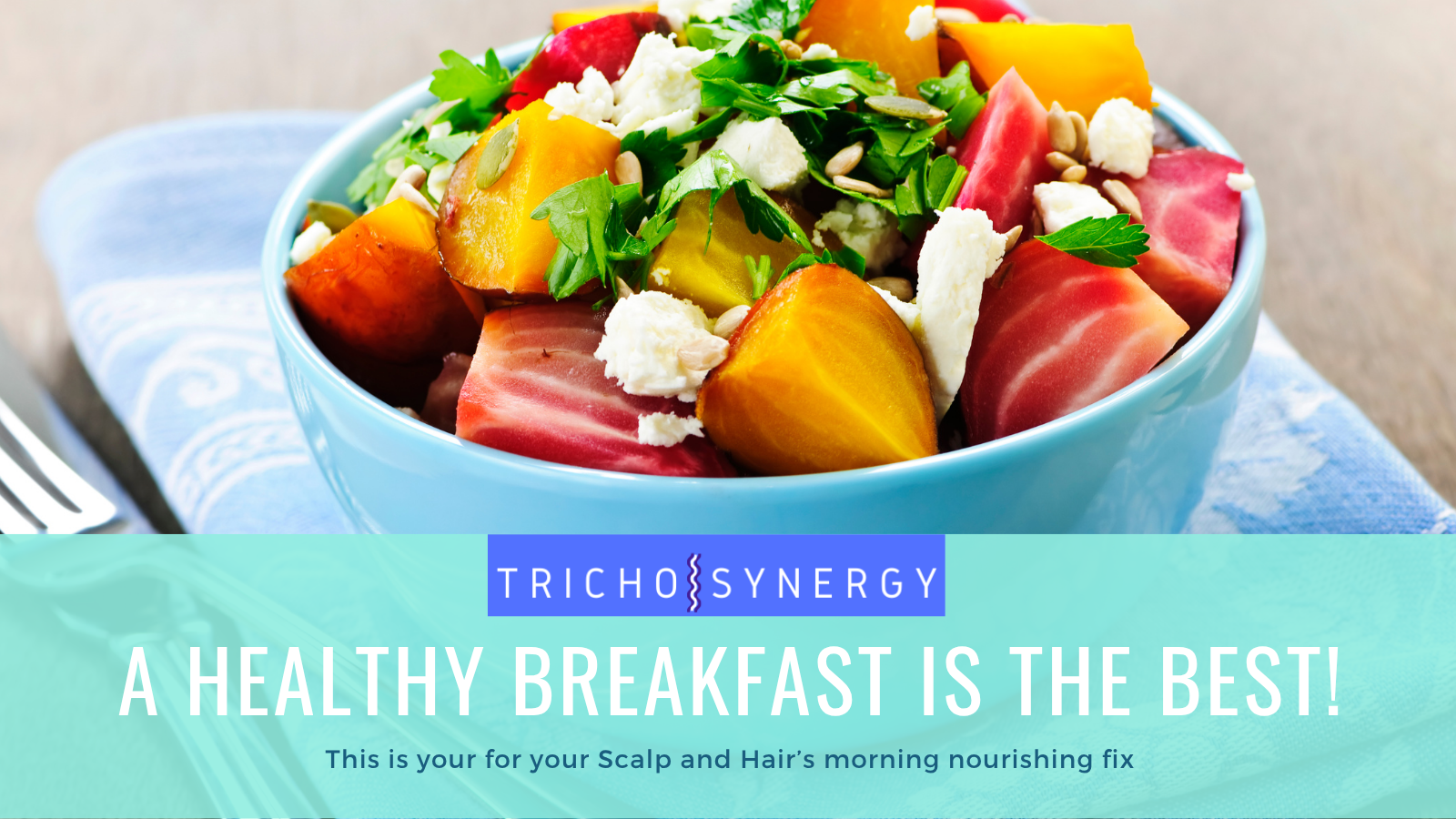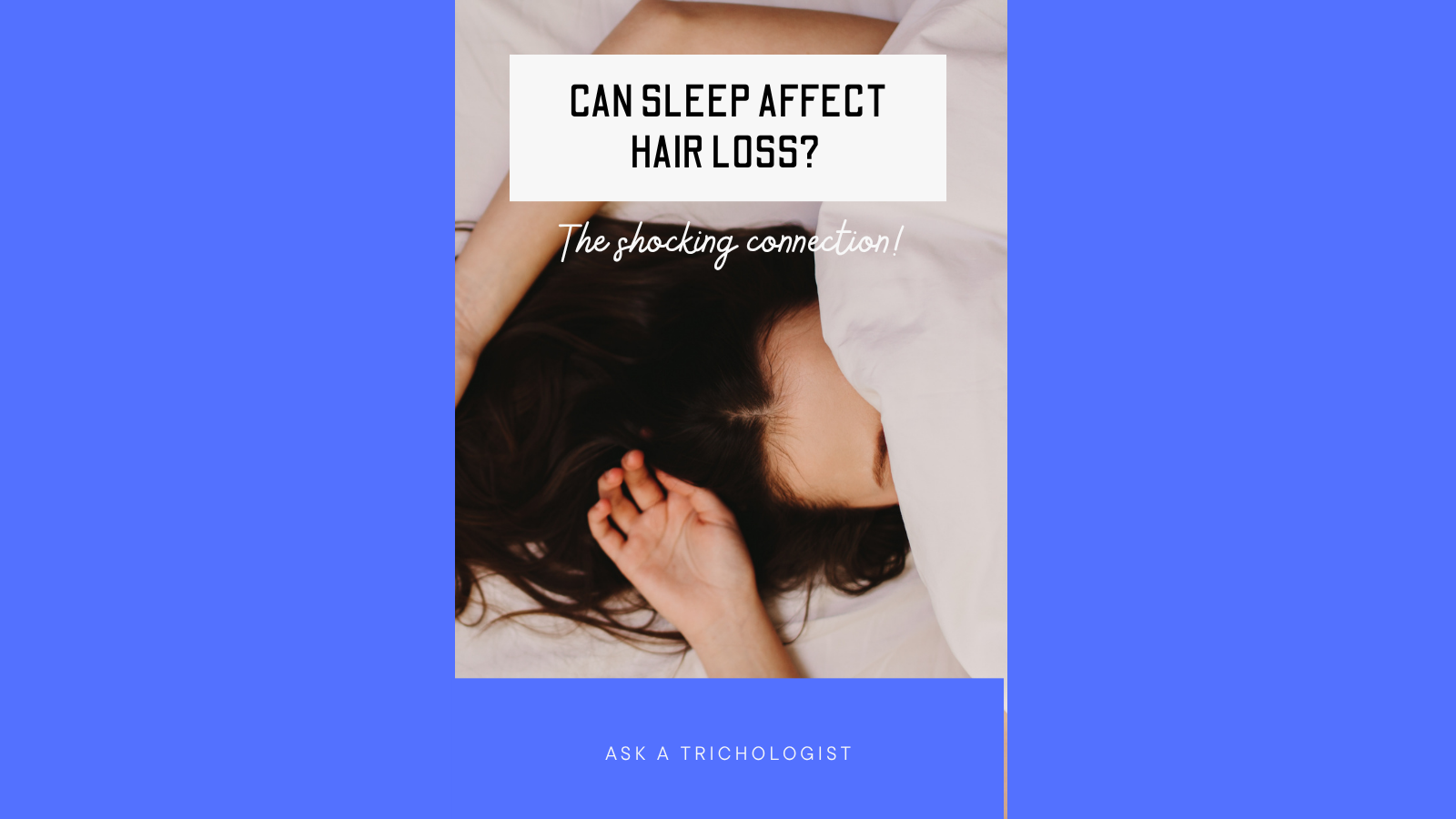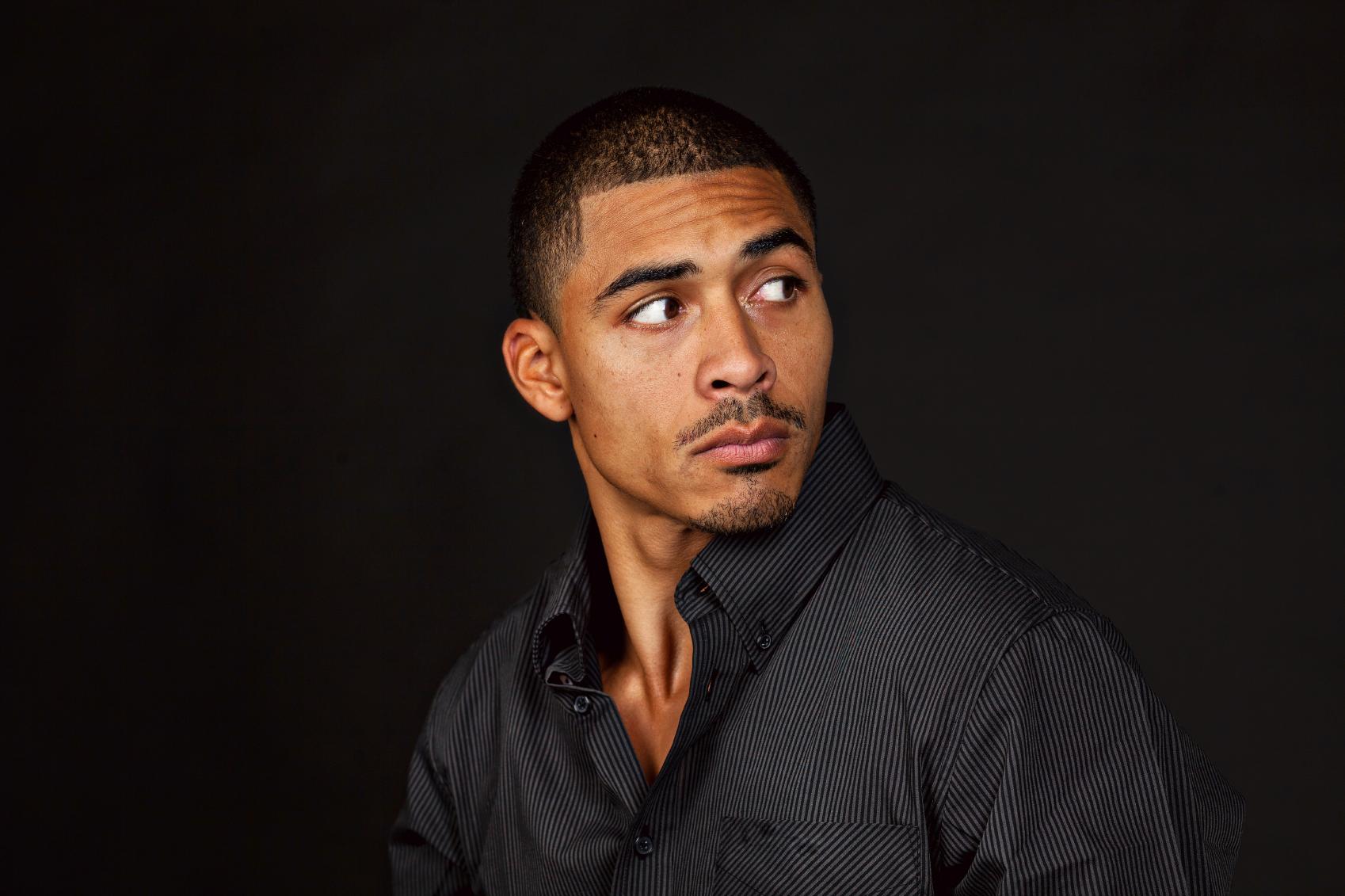Nutrition & Hair Health - A Complete Guide
A Complete Guide To Nutrition In Hair Health

Nutrition and Hair Health: The Connection
Your hair is not just a fashion statement it’s actually a barometer for your overall health. If you’ve ever wondered why your hair feels thin, brittle, or just doesn’t seem to grow as well as it used to, the answer might be sitting on your dinner plate. What you eat directly affects how your hair looks, feels, and grows.
Many women don’t realise that their hair problems might be linked to what’s missing from their diet. From teenagers dealing with hair that won’t grow past their shoulders to women in their 40s and 50s noticing their hair getting thinner, nutrition plays a huge role in hair health at every age.
Understanding Hair Growth: The Basics
Let’s understand how hair really grows. Our hair goes through three main phases in the Hair Growth Cycle:
1.The Growth Phase (Anagen): This is when your hair is actively growing. It can last anywhere from 2 to 7 years, and about 85% of your hair is in this phase at any given time.
2.The Transition Phase (Catagen): This short phase lasts about 10 days -3 weeks. Your hair stops growing and gets ready to shed.
3.The Resting Phase (Telogen): Your hair rests for about 3 months before falling out to make room for new growth.
For healthy hair growth, your body needs the right building blocks which come from the food you eat. When you’re missing key nutrients, your hair is often the first thing to suffer because your body prioritises the vital organs, such as your brain, heart, liver and kidneys over your hair growth.
The Anemia-Hair Loss Connection
One of the most common nutritional causes of hair problems is anaemia, especially iron-deficiency anaemia. This condition is particularly common in women because of monthly periods, pregnancy, and dietary choices.
What Is Anaemia?
Anaemia happens when your body doesn’t have enough healthy red blood cells to carry oxygen throughout your body. Iron-deficiency anaemia is the most common type, occurring when your body lacks enough iron to make healthy red blood cells.
How Does Anaemia Affect Your Hair
When you have anaemia, your body goes into survival mode. It sends the limited oxygen and nutrients to your most important organs first so your heart, brain, and lungs. Your hair follicles get whatever’s left over, which often isn’t much.
This lack of oxygen and nutrients can cause several hair problems which I see regularly in clinic with patients:
- Excessive hair shedding: You might notice more hair in your brush, on your pillow, or in the plug holes
- Slow growth: Your hair might seem to stop growing or grow much more slowly than usual
- Brittle, weak hair: Your hair might break easily and feel rough or dry
- Lack Lustre Hair: Healthy hair has a natural shine that comes from proper nutrition
- Thinning: Over time, you might notice your ponytail getting smaller or your scalp showing through
Signs You Might Have Anaemia
Besides hair problems, anemia can cause other symptoms:
- Feeling tired all the time, even after sleeping well
- Pale skin, especially noticeable in your inner eyelids or under your nails
- Cold hands and feet
- Brittle or spoon-shaped nails
- Unusual cravings for ice, starch, or dirt
- Restless leg syndrome
- Heavy menstrual periods
If you suspect you have anaemia, it’s important to see your GP for proper testing. A simple blood test can tell you if your iron levels are low.
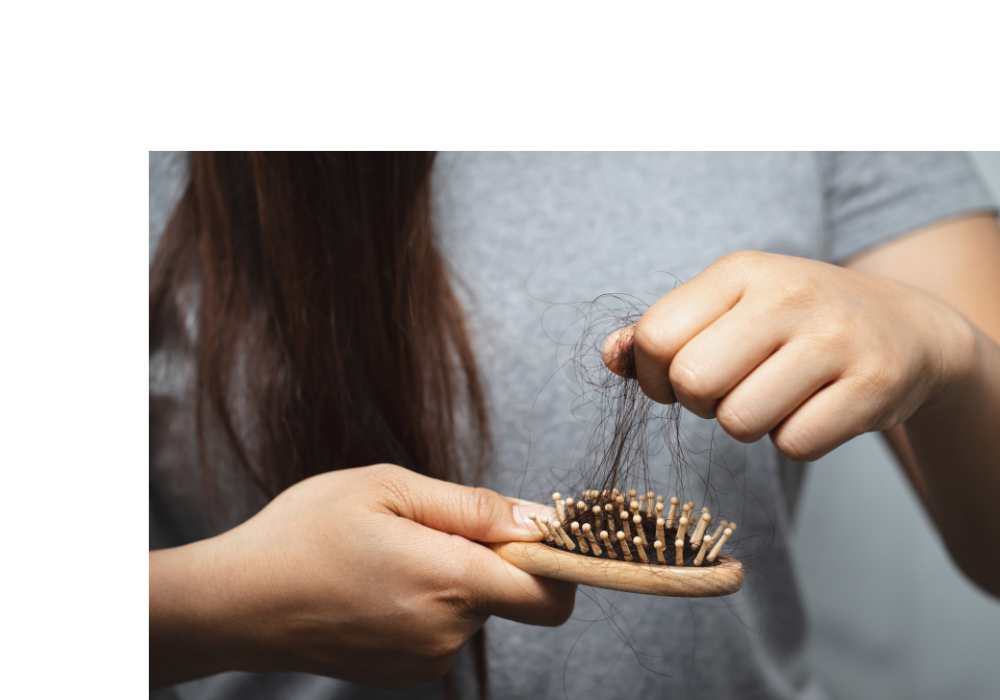
Essential Vitamins and Minerals for Hair Growth
The following specific nutrients are needed for your hair to grow stronger and healthier. The foundation for steady hair growth
Iron: The Foundation of Hair Health
Iron is arguably the most important nutrient for hair growth. It helps carry oxygen to your hair follicles and is essential for producing hair proteins.
Women aged 19-50 need about 18mg per day, while women over 50 need about 8mg per day.
Best food sources:
- Red meat (beef, lamb)
- Poultry (chicken, turkey)
- Fish (salmon, tuna, sardines)
- Leafy greens (spinach, kale)
- Legumes (lentils, chickpeas, beans)
- Fortified cereals
- Pumpkin seeds
- Dark chocolate
I recommend eating iron-rich foods with vitamin C (like orange juice or bell peppers) to help your body absorb more iron.
Protein: The Building Block of Hair

Your hair is made up of about 95% protein, specifically a protein called keratin. Without enough protein in your diet, your hair can become weak, thin, and prone to breakage.
How much you need: Most women need about 46-50 grams of protein per day, but this can vary based on your activity level and overall health.
Best food sources:
- Lean meats
- Fish and seafood
- Eggs
- Dairy products
- Beans and legumes
- Nuts and seeds
- Quinoa
- Greek yogurt
Vitamin C: The Protector and Absorber
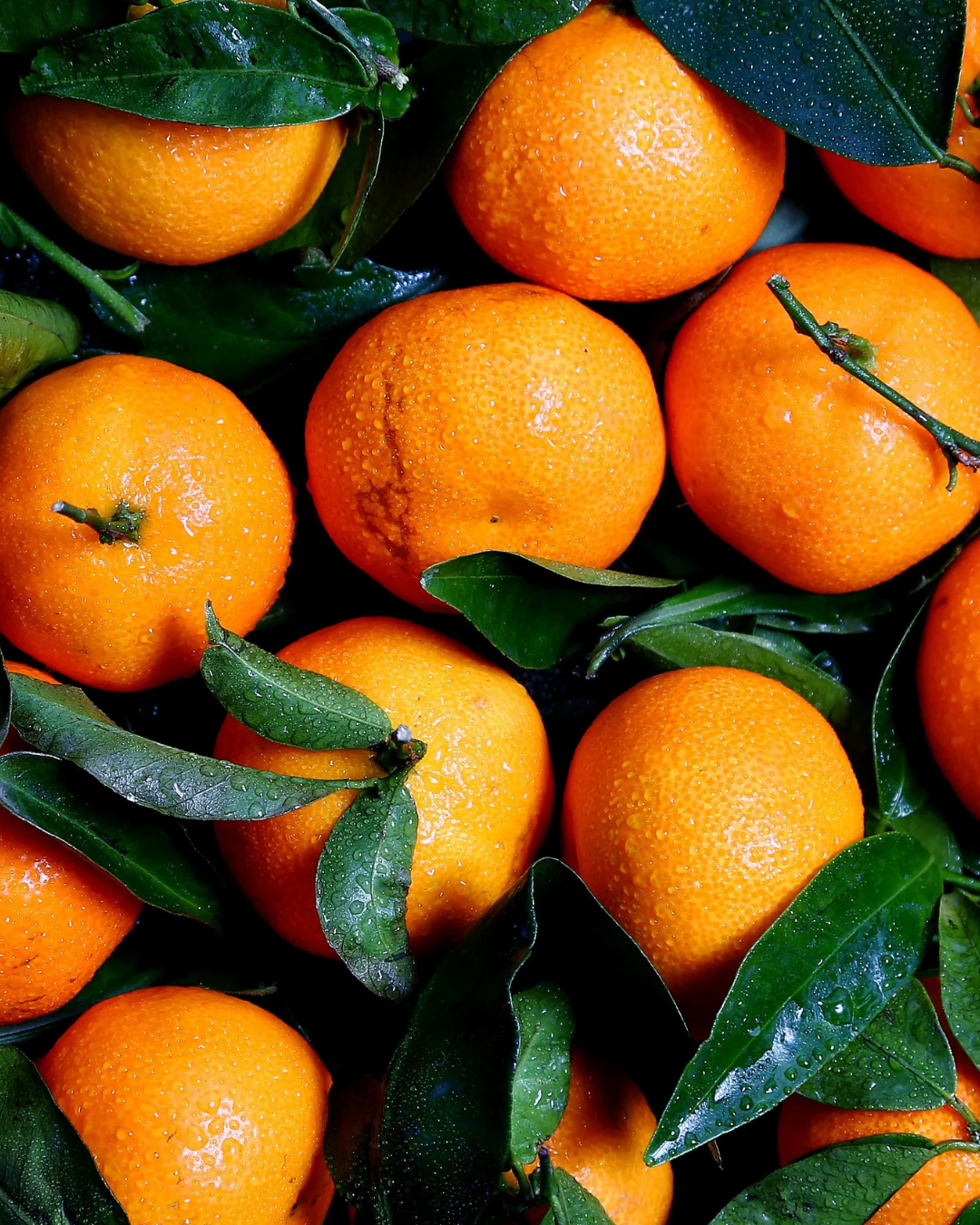
Vitamin C is a powerful antioxidant that protects hair from damage. It also helps your body absorb iron and is needed to make collagen, which strengthens hair.
Women need about 75mg per day.
Best food sources:
- Citrus fruits
- Berries
- Bell peppers
- Broccoli
- Brussels sprouts
- Strawberries
- Kiwi fruit
New title
Vitamin D: The Growth Stimulator
When to Seek Professional Trichology Help
While improving your nutrition can significantly help your hair health, sometimes you need professional guidance. Consider seeing a trichologist if you experience:
- Sudden, dramatic hair loss
- Bald patches
- Hair loss accompanied by other symptoms like fatigue or irregular periods (menses)
- No improvement after 3-6 months of improved nutrition
- Signs of eating disorders or extreme dietary restrictions
Your doctor or trichologist can order tests for underlying conditions like thyroid problems, hormonal imbalances, or severe nutritional deficiencies that might require medical treatment.
Remember, hair growth is a slow process. It typically takes 3-6 months to see significant changes from nutritional improvements because hair that’s already grown can’t be changed – you have to wait for new, healthier hair to grow.
Be patient with yourself and focus on creating sustainable habits rather than looking for quick fixes.
The journey to healthier hair through better nutrition, is really a journey to better overall health. By nourishing your body with the right nutrients, you’re investing in beautiful hair, investing in feeling stronger, more energetic, and healthier at every age.
Start small, be consistent, and remember that every healthy choice you make is a step toward the strong, beautiful hair you deserve.
Vitamin D helps create new hair follicles and may help wake up dormant follicles. Many people, especially those who spend most of their time indoors, are deficient in vitamin D.
Most adults need about 600-800 IU per day.
Best sources:
- Sunlight (15-20 minutes of direct sun exposure daily)
- Fatty fish (salmon, mackerel, sardines)
- Fortified milk and cereals
- Egg yolks
- Mushrooms
- Supplements (if recommended by your doctor)
B-Vitamins: The Energy Boosters
Several B-vitamins are crucial for hair health:
Biotin (B7): Often called the “hair vitamin,” biotin helps your body process proteins and is essential for hair growth.
- Food sources: Eggs, nuts, seeds, sweet potatoes, spinach
Folate (B9): Helps with cell division and DNA synthesis, both important for hair growth.
- Food sources: Leafy greens, citrus fruits, beans, fortified grains
B12: Essential for red blood cell formation and can prevent hair loss.
- Food sources: Meat, fish, dairy, fortified cereals (vegetarians may need supplements)
Niacin (B3): Improves blood circulation to the scalp.
- Food sources: Meat, fish, nuts, green vegetables
Vitamin A
Vitamin A helps your scalp produce sebum, the natural oil that keeps your hair moisturised. However, too much vitamin A can actually cause hair loss, so balance is key.
Best food sources:
- Sweet potatoes
- Carrots
- Spinach
- Kale
- Eggs
- Milk
Zinc: The Repair Specialist
Zinc plays a role in hair tissue growth and repair. It also helps keep the oil glands around hair follicles working properly.
Women need about 8mg per day.
Best food sources:
- Oysters
- Red meat
- Poultry
- Beans
- Nuts
- Seeds
- Whole grains
Omega-3 Fatty Acids: The Shine Providers
These healthy fats add shine and elasticity to your hair. They also have anti-inflammatory properties that can help with scalp health.
Best food sources:
- Fatty fish (salmon, sardines, mackerel)
- Walnuts
- Flaxseeds
- Chia seeds
- Hemp seeds
Creating a Hair-Healthy Diet
Now that you know which nutrients your hair needs, let’s talk about how to get them into your daily diet. The good news is that you don’t need to completely overhaul your eating habits since small changes can make a big difference.
Start Your Day Off On The Right Foot
Breakfast ideas for healthy hair:
- Greek yogurt with berries and nuts (protein, vitamin C, healthy fats)
- Scrambled eggs with spinach and whole grain toast (protein, iron, B-vitamins)
- Oatmeal topped with sliced almonds and fruit (protein, iron, vitamins)
- Smoothie with spinach, banana, and protein powder (iron, vitamins, protein)
Power-Packed Lunches
- Salmon salad with mixed greens and avocado
- Lentil soup with a side of vitamin C-rich vegetables
- Chicken and vegetable stir-fry over brown rice
- Bean and vegetable wrap with hummus
Dinner for Hair Health
- Grilled fish with roasted sweet potatoes and broccoli
- Lean beef with quinoa and steamed spinach
- Turkey meatballs with whole grain pasta and marinara sauce
- Vegetarian chili loaded with beans and vegetables
Smart Snacking
- A handful of nuts and seeds
- Greek yogurt with fruit
- Hard-boiled eggs
- Hummus with vegetable sticks
Last But Not Least ...Lifestyle Factors That Support Hair Health
Good nutrition is just one piece of the puzzle. Several lifestyle factors can either support or undermine your hair health efforts which of the following do you resonate with:
Manage Stress
Chronic stress can push hair follicles into the resting phase, leading to hair loss. Find healthy ways to manage stress like exercise, meditation, or hobbies you enjoy.
Get Enough Sleep
Your body repairs and regenerates during sleep, including hair growth. Aim for 7-9 hours of quality sleep each night.
Stay Hydrated
Your hair needs water to stay moisturised and healthy. Aim for at least 8 glasses of water per day.
Be Gentle with Your Hair
Avoid excessive heat styling, tight hairstyles, and harsh chemical treatments that can damage hair and counteract your nutritional efforts.
Exercise Regularly
Regular exercise improves blood circulation, which helps deliver nutrients to your hair follicles. The journey to healthier hair through better nutrition is really a journey to better overall health. With persistence your health and your hair will become the best they can be.
I always encourage patients to have a health care routine as this will always translate to better hair and scalp conditions.
Get in touch if you'd like a one-to-one chat about your hair or scalp health.
"We are passionate about healthy hair"
Hair loss treatments for patients in and around London. Providing TrichoSynergy personal consultations and hair treatments.
Don't despair! Call to find out how we can help...
At TrichoSynergy we diagnose the cause and provide bespoke treatments for each of our patients.
Happy Healthy Hair Blog
